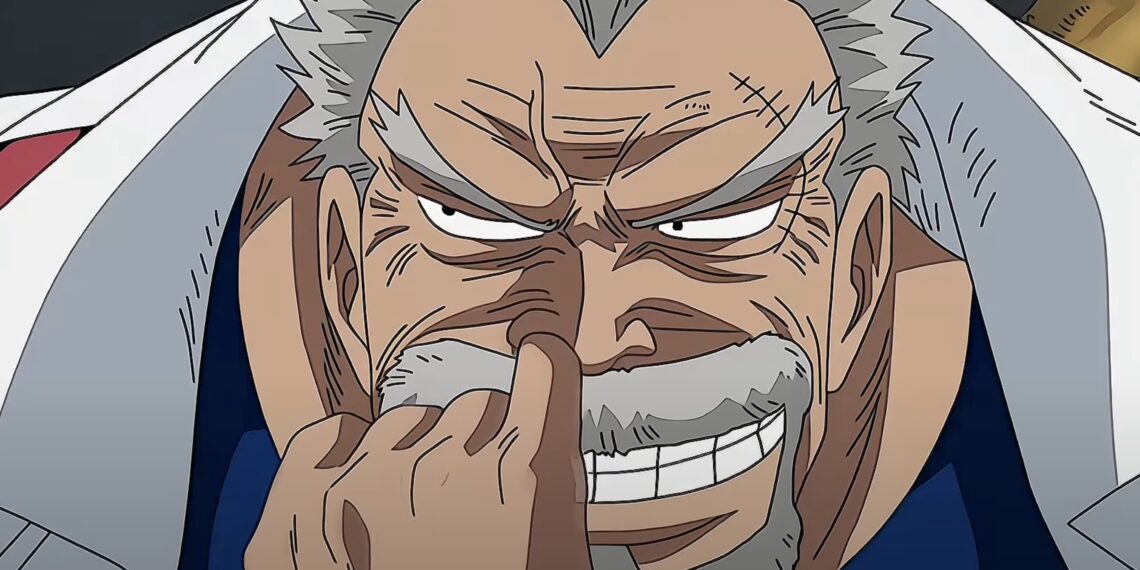Monkey D. Garp, the eccentric grandfather of Luffy and Ace in the acclaimed anime One Piece, is a character shrouded in mystery and complexity. On the one hand, he is a legendary Marine Vice Admiral, responsible for taking down some of the most notorious pirates of his era. However, his motivations and true allegiances remain ambiguous.
Despite his outward persona of a bumbling and carefree old man, Garp clearly harbors great affection and concern for his family members and close friends.
Yet two of his grandsons have gone on to become infamous pirates, suggesting Garp’s principles may not align fully with the World Government he serves.
Some fans even speculate whether Garp has secretly allowed or enabled the next generation of D’s to continue stirring up trouble on the high seas.
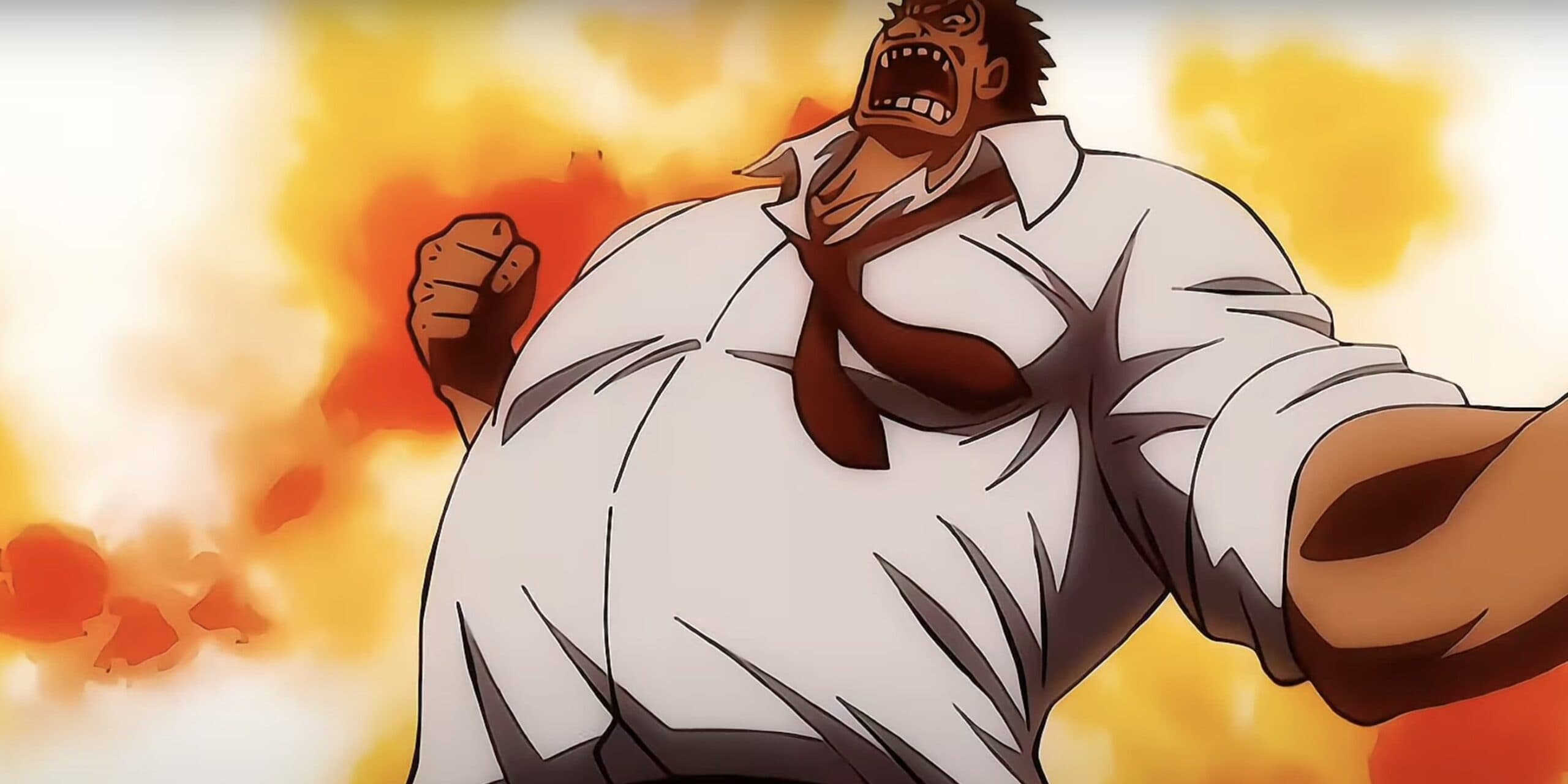
Adding further intrigue is Garp’s storied history with the late Pirate King Gol D. Roger. Garp allowed Roger to live long enough to ignite the Great Pirate Era by passing on the mission to find the mythical One Piece treasure.
Was this a lapse in judgment from his otherwise sterling Marine record of fighting pirates? Or does it hint at a deeper camaraderie and mutual understanding between the two men?
In many ways, Garp defies simplistic labels. His past actions have both upheld and undermined the World Government’s ideals in complex ways.
Is he a Marine hero, a lingering rebel, a devoted if conflicted grandfather, or something in between? Fans continue to debate the truth about this eyebrow-raising enigma.
One Piece Fans Debate Garp’s Choices Regarding Ace, Stirring Controversy
Monkey D. Garp makes his debut in Chapter 92 of One Piece, instantly endearing himself to fans with his affable nature and signature dog mask.
As the gruff but kindly mentor to young Marines like Koby and Helmeppo, Garp seems to represent justice and honor within an often corrupt World Government system.
However, later revelations cast Garp’s principles into greyer shades.
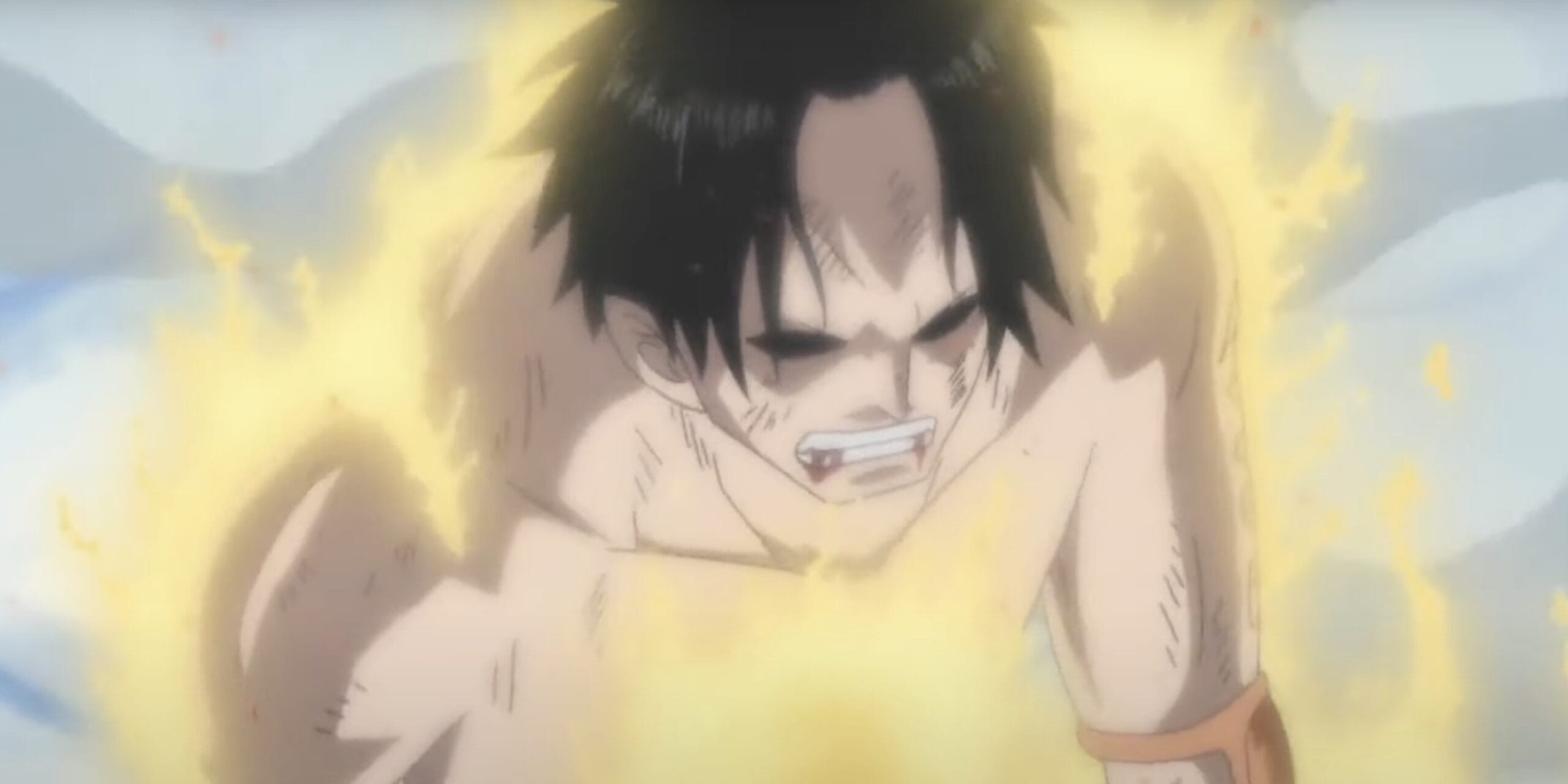
While he cares deeply for the subordinates he has taken under his wing, Garp shows questionable judgment when it comes to confrontations with family members. He allows his grandson Luffy to escape execution at Marineford.
And there are hints that Garp may have been complicit, if only through inaction, in the rise of other prominent pirate relatives like Gol D. Roger.
These moments seed doubts about Garp’s reliability when forced to choose between his Marine duties and personal loyalty.
Is he an upstanding defender of justice who simply has a few major blind spots around blood relatives? Is he secretly playing multiple angles as a covert defender of the persecuted “D” clan?
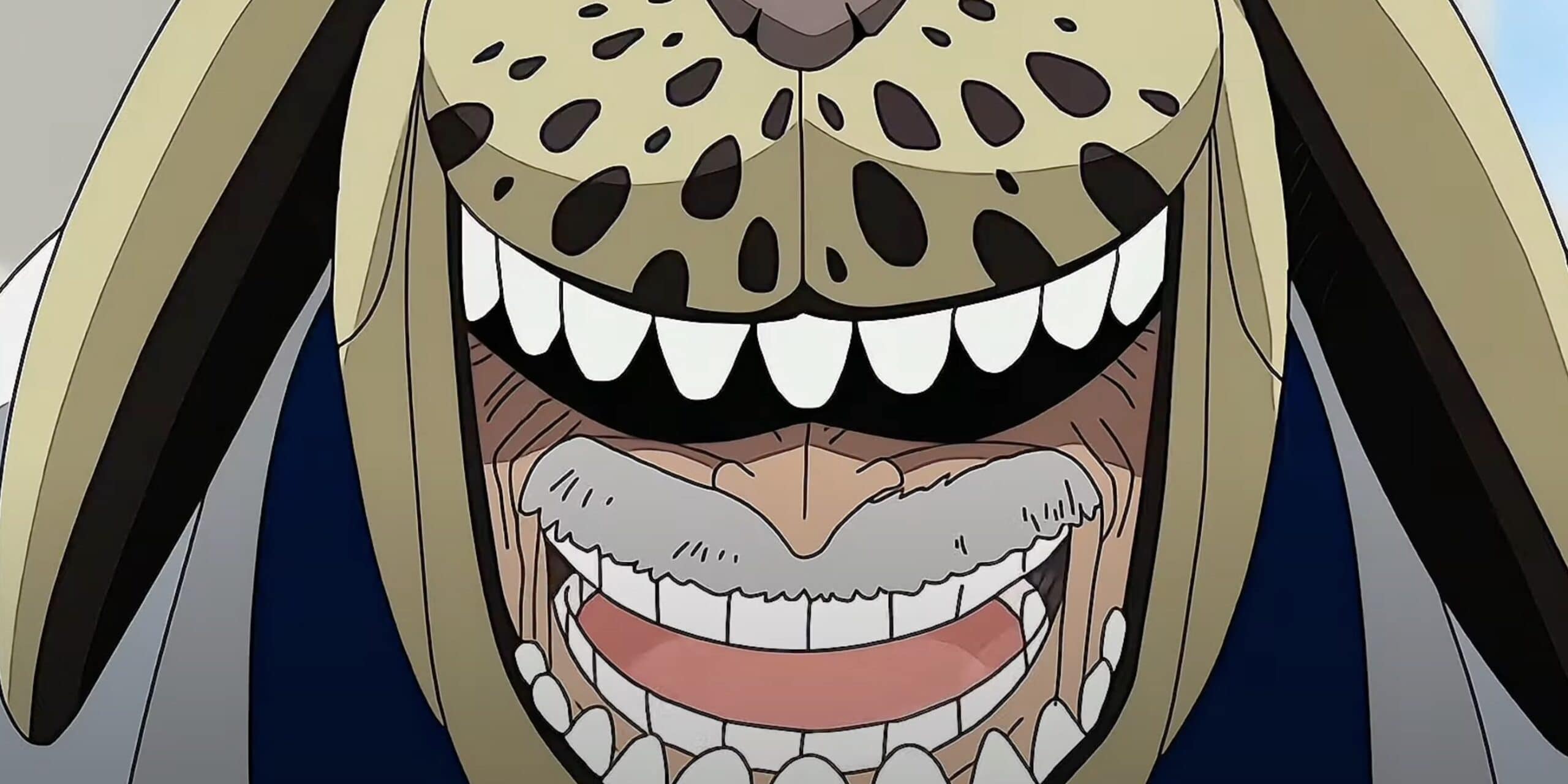
Or do his wavering decisions ultimately make him more of a morally ambiguous follower than a virtuous leader?
The introduction of the affable and goofy Garp represented the good side of Marine justice.
But later arcs gradually revealed the complex duality surrounding this duty-bound grandfather and the way he walks the line between order and rebellion, right and wrong.
What truly lies behind the mask of this supposedly steadfast servant of the World Government remains one of the most intriguing mysteries of the entire One Piece saga.
Is Garp A Coward?
In his prime, Vice Admiral Garp built a legendary reputation as a valiant and courageous Marine through bold actions against iconic pirates.
He fought shoulder-to-shoulder with the future Pirate King to take down the fearsome Rocks D. Xebec. He overwhelmed the notorious Golden Lion Shiki in tandem with Sengoku.
Time and again, Garp has confronted the era’s most dangerous threats without hesitation.
However, some fans argue that true heroism requires more than feats of strength – it requires acting on one’s principles to drive positive change.
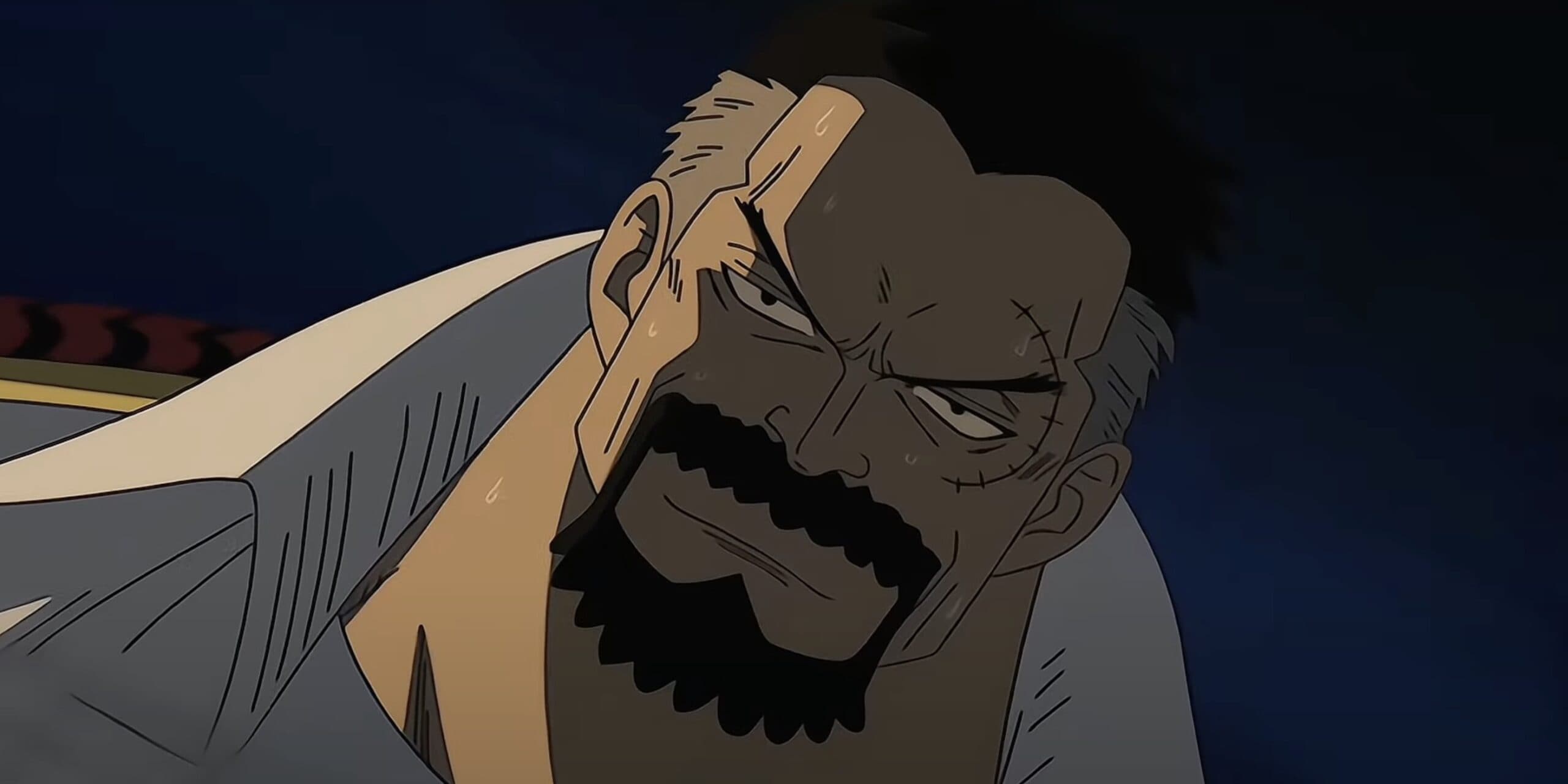
And in that regard, Garp has seemingly failed to step up by tackling the deeper injustices perpetuated by the very World Government he serves.
Despite his family connections to persecuted D clan members, Garp continues to tacitly enable the World Government’s oppression, killings, and propaganda.
He follows orders to chase down his own grandsons, never leveraging his reputation to publicly condemn the system rotting away from within.
No matter how many pirates he captures, the power balance remains tilted against freedom and truth-telling.
So when fans label Garp as a “coward”, they aren’t targeting his personal bravery in combat against long odds.
They are pointing to his reluctance to disrupt the status quo he has benefited greatly from, even as the morality crumbles around him.
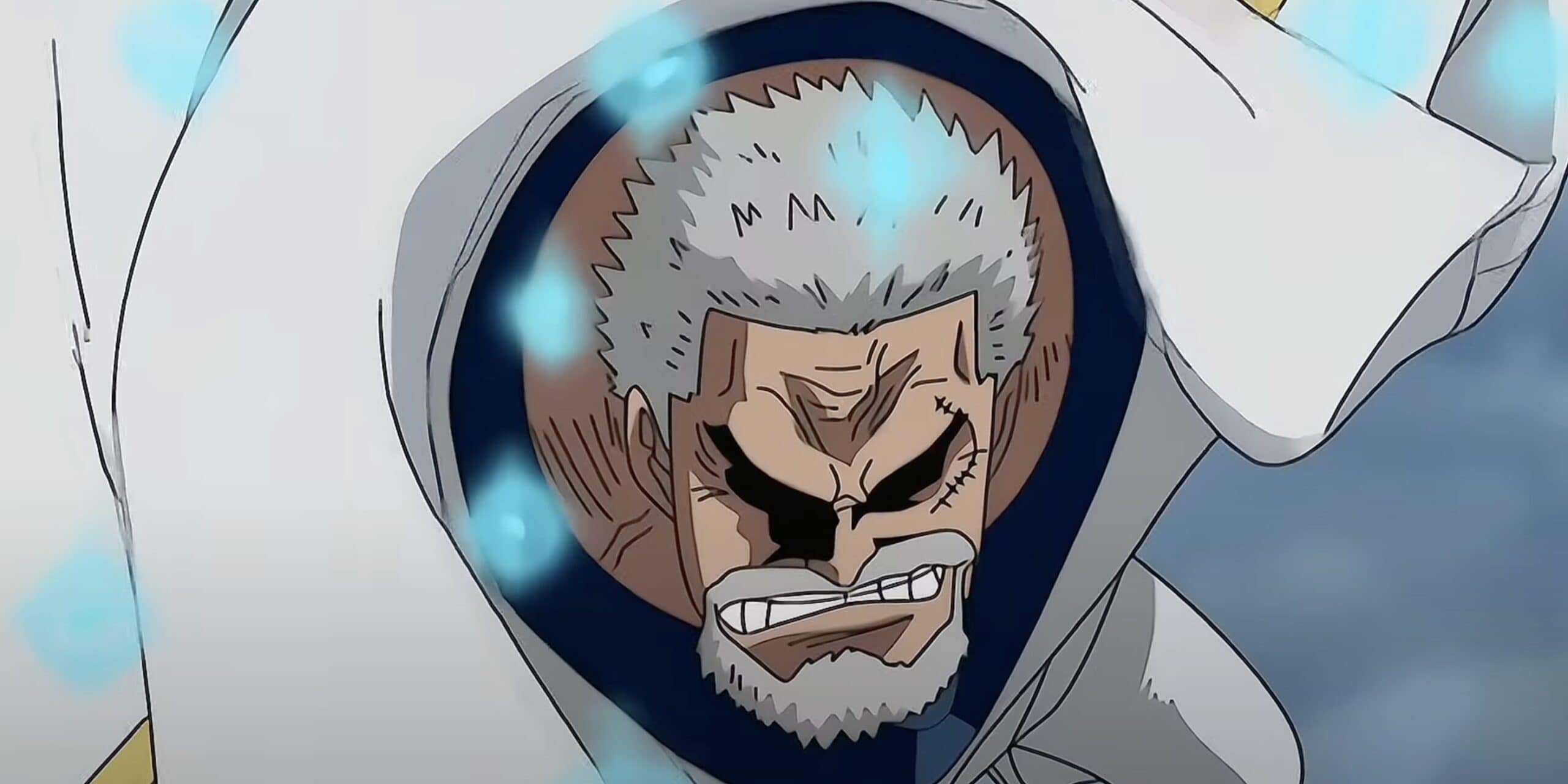
A hero who truly wanted to enact change would speak truth to power, not blindly obey it. In that crucial sense, Garp’s inaction speaks louder than any spectacular clash with a pirate.
One Piece Talk’s Bold Take
In a video review of One Piece Chapter 1096, popular YouTube analyst One Piece Talk leveled a provocative accusation – calling legendary Marine Vice Admiral Monkey D. Garp a “coward” rather than a “fraud.”
He points to specific examples that undermine Garp’s fearsome reputation as a crusader for justice.
The chapter in question depicts a historical incident where Garp was present as the World Government violently oppressed the island of Buccaneers for refusing to submit to authoritarian rule.
Despite clear injustice, Garp not only refused to intervene but actively fought on behalf of the tyrannical Celestial Dragons abusing their power.
For One Piece Talk, this stoic compliance in the face of a moral atrocity proved Garp is too afraid to stand up to systemic corruption – even as innocents suffered.
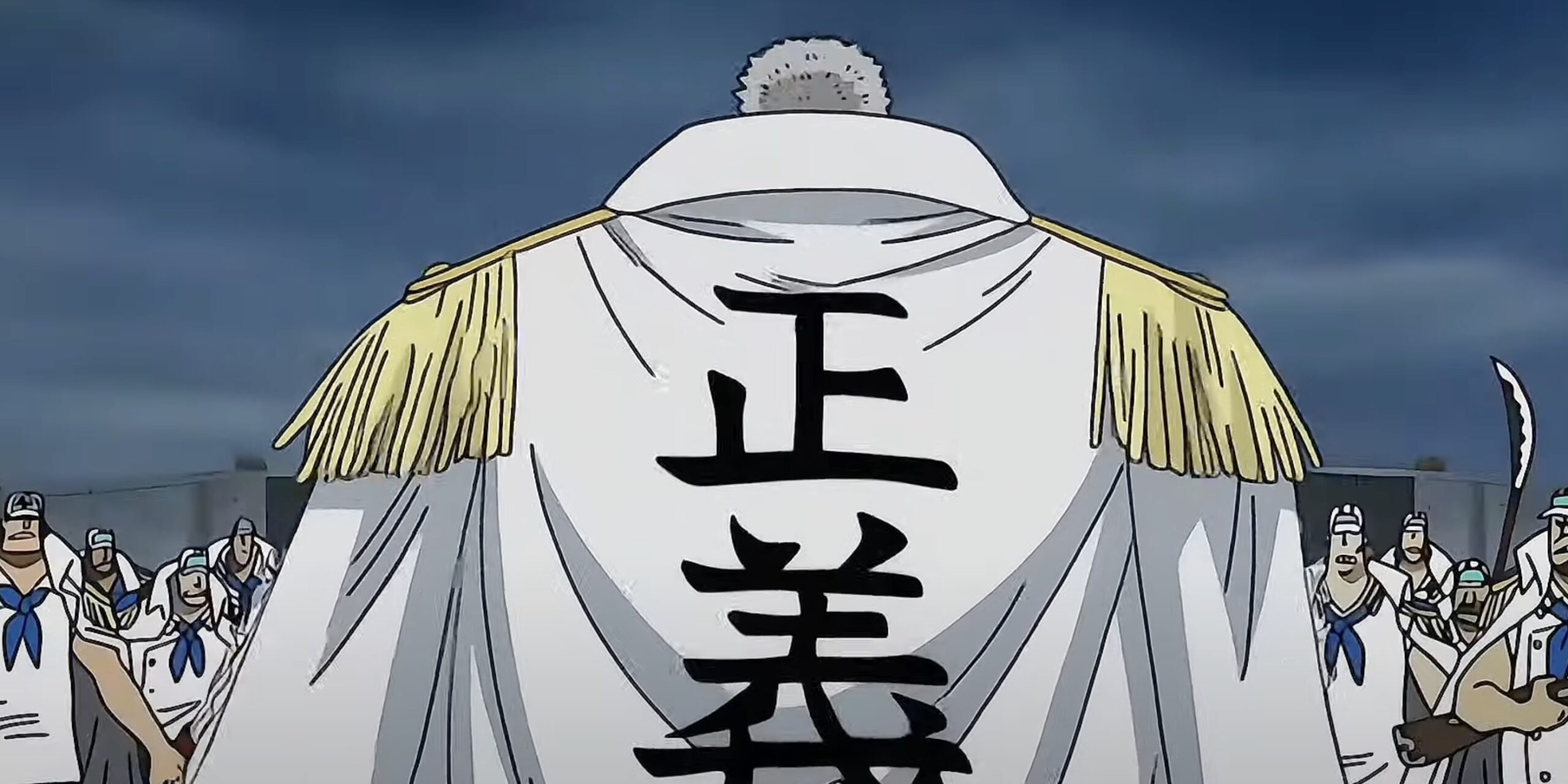
His cowardice also enabled another heinous government action shortly afterward – the mass purging of any pregnant women or infants who might have been related to the executed Pirate King Gol D. Roger.
As Roger’s actual son Portgas D. Ace was then born in secrecy, Garp had to have understood the genocidal intent behind the World Government’s actions.
And yet the rising Vice Admiral remained silent once again while untold innocents died across the globe. He was too much of a coward to endanger his privileged position.
So while fans may debate whether Garp is a fraud, OP Talk argues the far more damning truth is that he is an ethical coward.
When it truly mattered, he lacked the courage to fight for justice in any form beyond his narrow Marine duties. And a true hero cannot turn a blind eye forever.
Unraveling the Tragic Breakdown of Trust in One Piece
When Gol D. Roger was sentenced to execution, he placed tremendous trust in his longtime pursuer Vice Admiral Garp – entrusting Garp to protect his unborn child and partner Portgas D. Rouge until they could safely give birth away from the murderous eyes of the World Government.
This required immense sacrifice and suffering from Rouge, who courageously volunteered to spend 22 grueling months hidden away in darkness while carrying Ace to term, all to avoid detection.
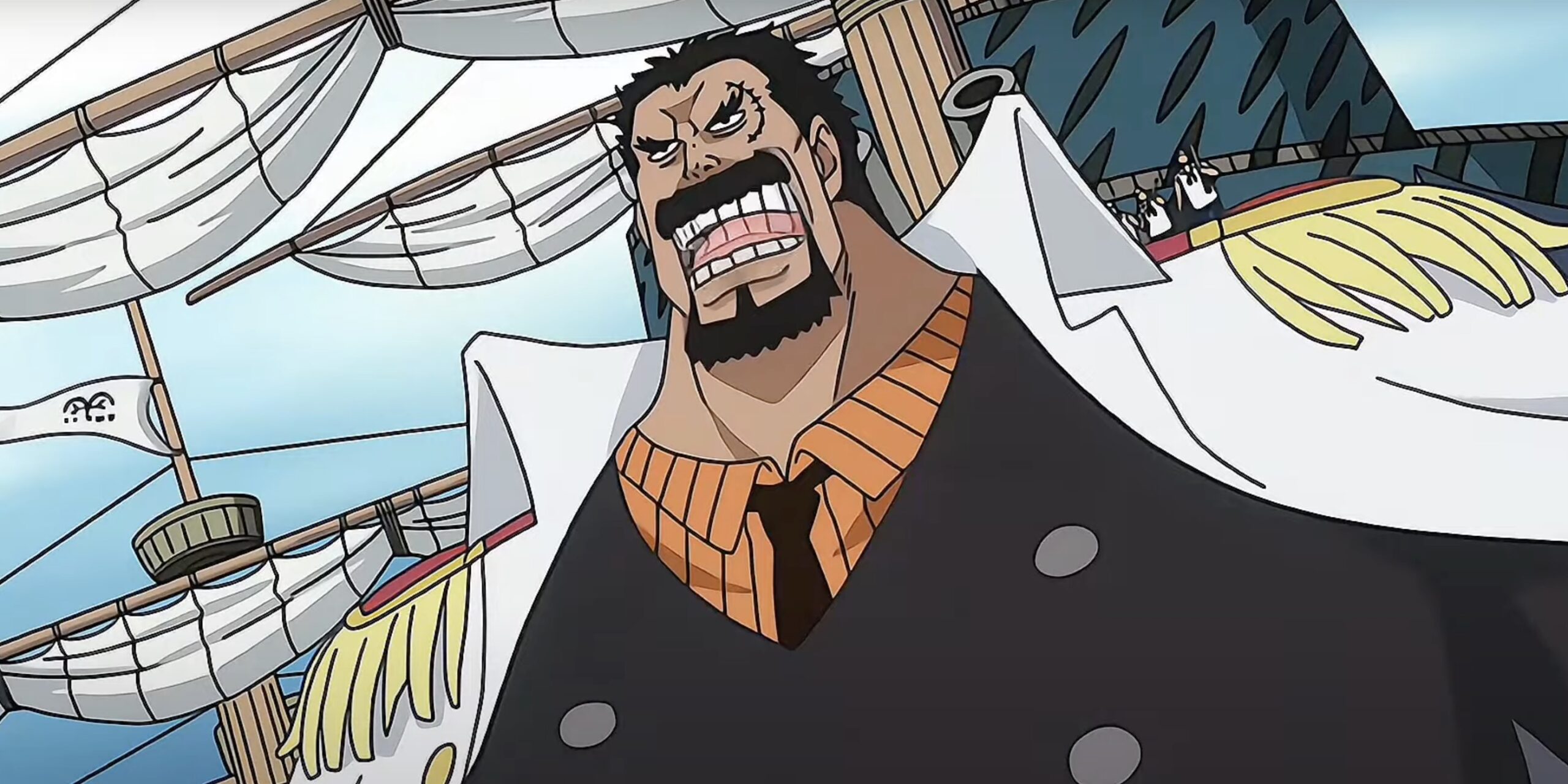
After going so far to shelter his family line, Roger likely believed the honor-bound Garp would uphold his duty no matter what.
Yet tragedy struck time and again. Mere months after giving birth in secrecy, Rouge lost her life. Ace was then left in Garp’s sole custody to be raised and hidden from authorities.
Despite these efforts, Ace too met a horrific, premature end – killed in battle by Admiral Akainu against Garp’s vehement wishes. Some fans saw Akainu’s lethal blow as a complete failure by Garp to keep Roger’s lineage secure as sworn.
In making that fateful promise to Roger, perhaps Garp did not fully anticipate the bloody lengths the World Government would go to erase every trace of the Pirate King.
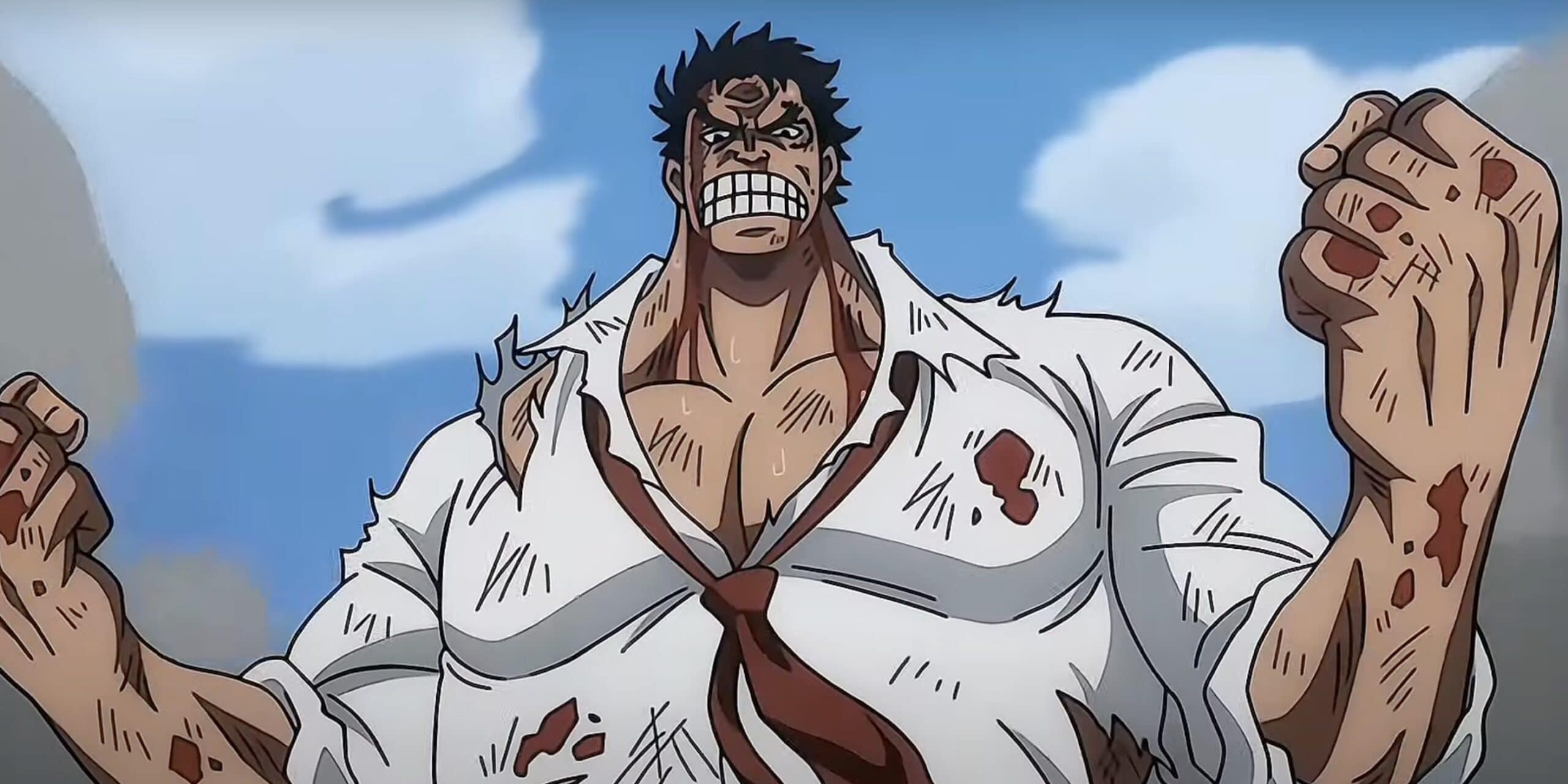
But more cynical viewers believe Garp ultimately put safeguarding his career over safeguarding lives by the end. Both Ace and Rouge paid a terrible price while Garp survived unscathed.
Right or wrong, he failed spectacularly to uphold his last duty to Roger while cowardly allowing the government’s hatred to consume innocents.
Why Garp Has A Complex Personality?
As a Vice Admiral, Monkey D. Garp occupies an intriguing middle ground between the upper echelons of Navy power and the freewheeling independence of piracy.
On one hand, he has repeatedly refused promotion to Admiral because it would force him to directly serve the corrupt Celestial Dragon nobles. He values his autonomy too much.
However, it’s also too simplistic to paint Garp as Having turned a willful blind eye to Marine corruption out of selfishness.
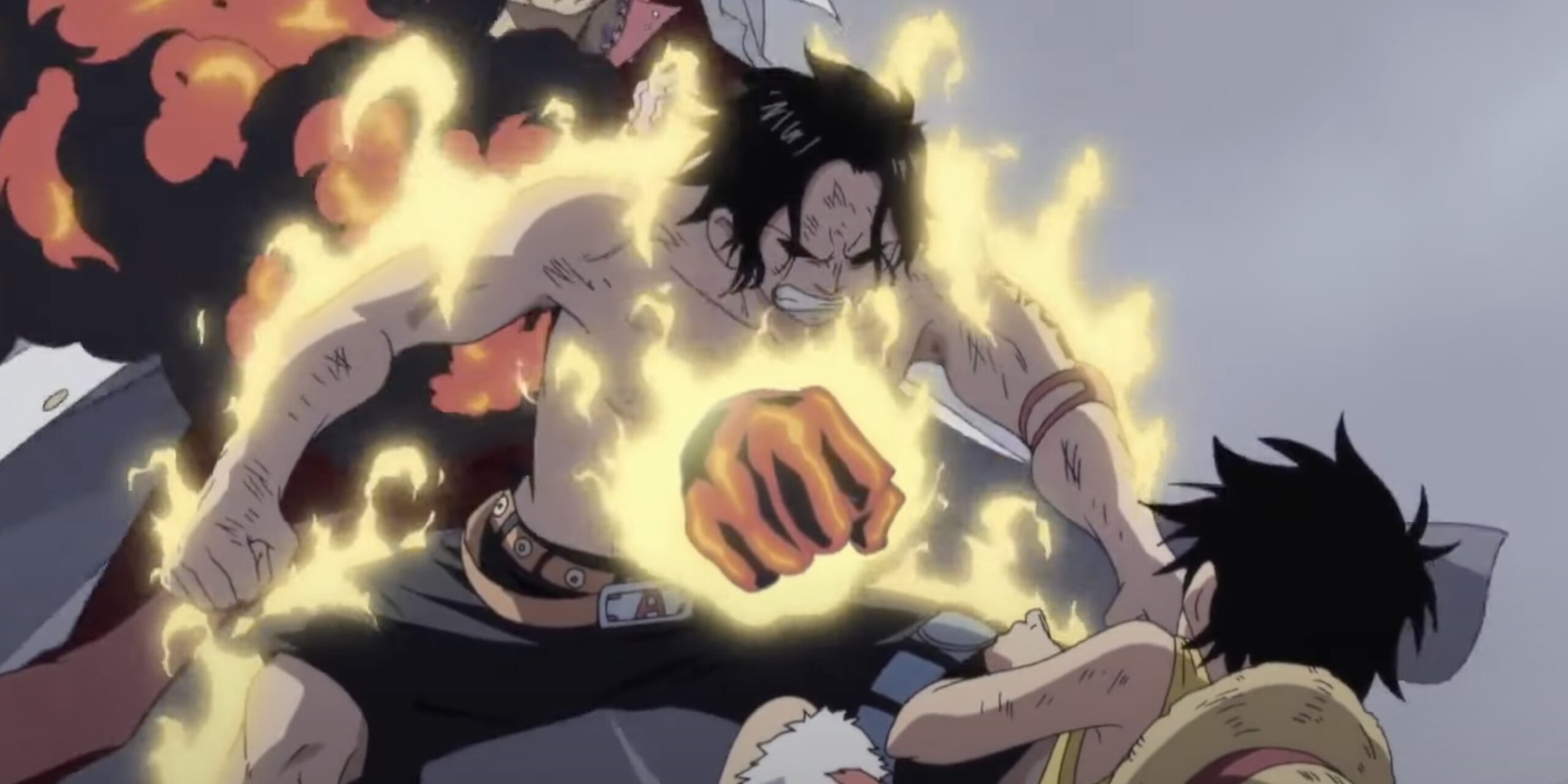
He earnestly believes in upholding justice and views rising piracy as a plague that erodes social order. This black-and-white absolutism led him to aggressively train Luffy and Ace to become Marines against their will.
Yet the manga suggests Garp’s orthodox definition of justice is outdated and hypocritical. The_ real_ tyranny and suffering stem from the Noble and World Government system he continues to enable out of duty.
And the longer Garp stubbornly equates piracy with pure evil from his privileged position, the more reformers he will condemn by default.
Ultimately he is bound more by conservative doctrine than empathy. Readers see roguish pirates as liberators because they care for common people that Garp’s system oppresses.
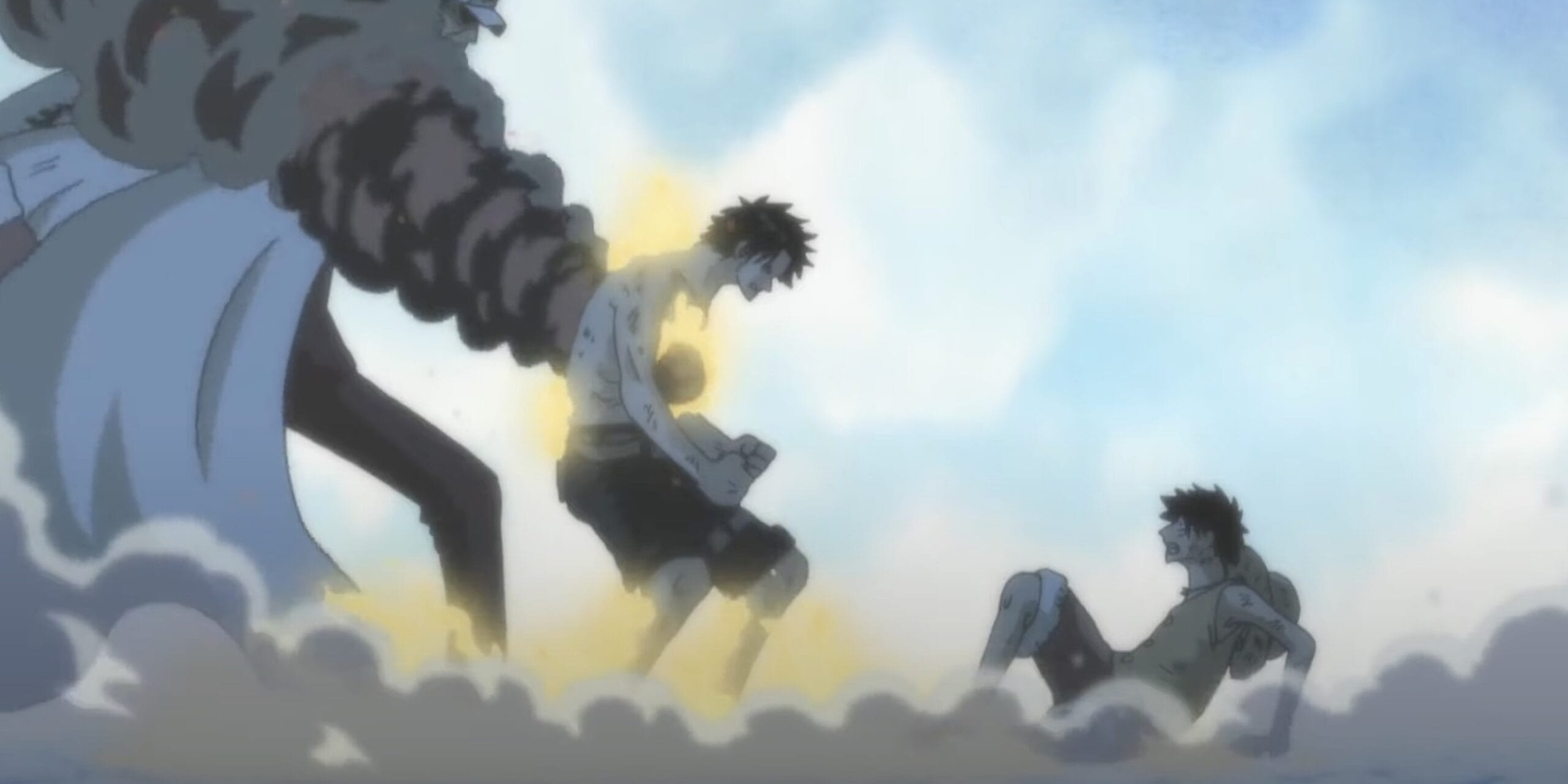
And until Garp confronts this painful ideological contradiction of condoning shared blood becoming enemies of the state, he remains Marine first, grandfather second.
His principled force of will is also his great blindness. What he views as unwavering duty comes across as baffling cowardice to modern reformist eyes in the story and audience.

